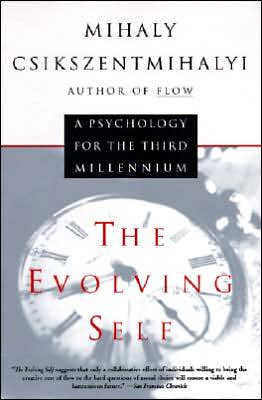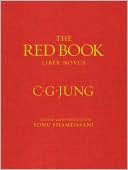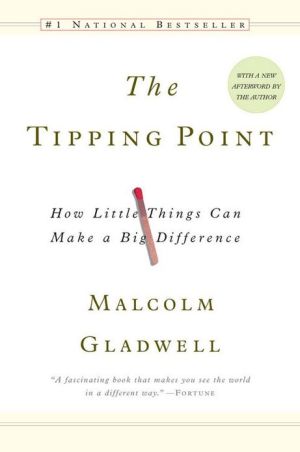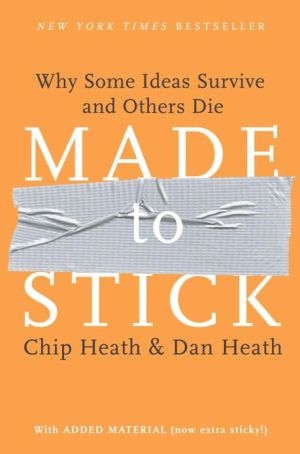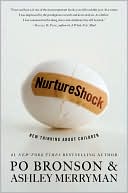Evolving Self: A Psychology for the Third Millennium
The author of the bestselling Flow (more than 125,000 copies sold) offers an intelligent, inspiring guide to life in the future.
Search in google:
The author of the bestselling Flow (more than 125,000 copies sold) offers an intelligent, inspiring guide to life in the future.
Chapter One\ \ The Mind and History\ \ \ \ The Perspective of Evolution\ Each year we learn more about the incredible complexity of our universe. The mind staggers at the intimation of billions of galaxies, each made up of billions of stars, slowly revolving in every direction for unimaginable distances. And inside each grain of matter super-colliders reveal ever-receding constellations of strange particles streaking along mysterious orbits. In the midst of this field of stupendous forces a human life unfolds in what is less than a split second on the cosmic time scale. Yet, as far as we are concerned, it is this, our own short life, filled with its few precious moments, that counts for more than all the galaxies, black holes, and exploding stars put together.\ And there is good reason for feeling this way. As Pascal said, humans may be fragile as reeds, but they are thinking beings; in their consciousness they reflect the immensity of the universe. In the last few centuries, the human presence has become even more central in the natural world. We have only recently been able to have a glimpse of the millions of years that preceded us, eons during which thousands of organisms replaced one another, struggling to survive in an ever-changing landscape. And we now realize that our unique heritage-the reflective consciousness that lulled us into believing for a while that we were forever destined to be the crown of creation-brings with it an awesome responsibility. We realize that being at the cutting edge of evolution on this planet means we can either direct our life energy toward achieving growth and harmony or waste the potentials we haveinherited, adding to the sway of chaos and destruction.\ In order to make choices that will lead to a better future, it helps to be aware of the forces at work in evolution; after all, it is through them that we will succeed or fail as a species. My intention in this book is to reflect on what we know about evolution, and to develop the implications of that knowledge for everyday. action. If we understand better what we are up against, we have a better chance to live our lives in a responsible fashion, and perhaps to help direct the future toward the most positive goals of humanity.\ One result of reflecting on evolution is that one learns to take the past very seriously. Natura non fecit saltum, the Romans said: Nature does not progress by leaps and bounds. What we are today is the result of forces that acted on our ancestors many millennia ago, and what humankind will be in the future is going to depend on our present choices. But our choices are influenced by a number of constraints that are part of the evolutionary makeup of every human being. They are subject to the genes that regulate the functions of our body, and to instincts, which, for example, drive us to be angry or sexually aroused even when we don't want to be. They are also constrained by cultural heritage, by systems that teach men -to be manly and women to be ladylike, or one religion to be intolerant of the members of another.\ While striving to change the course of history we cannot wish away the constraints that the past has burdened us with; to do so would lead only to frustration and disillusion. Knowledge of these forces that determine consciousness and action, however, can make it possible for us to become liberated from them: to become free to decide what to think, what to feel, and how to act. At this point in our history it should be possible for an individual to build a self that is not simply the outcome of biological drives and cultural habits, but a conscious, personal creation. That self will be aware of its freedom and not fear it. It will enjoy life in all its forms, and gradually become aware of its kinship with the rest of humanity, with fife as a whole, and with the pulsing forces that animate the world beyond our comprehension. When the self begins to transcend the narrow interests built into its structure by evolution, it is then ready to start taking control of the direction of evolution in its turn. But shaping the future course of evolution is not something that can be accomplished by solitary individuals working alone. Therefore, it is necessary to consider which social institutions are most likely to sponsor positive evolutionary actions, and how we can develop more of them.\ This, in brief, is the project of this book. It will first explore the forces from the past that have shaped us and made us the kind of organisms we are; it will describe ways of being that help us free ourselves of the dead hand of the past; it will propose approaches to life that improve its quality and lead to joyful involvement; and it will reflect on ways to integrate the growth and liberation of the self with that of society as a whole. Clearly the task set out for the book is too ambitious to be achieved inside the compass of its covers. Knowledge increases each year; experience matures with time. Writing about such matters is in itself an evolutionary processslowly changing, never ending-but it is my hope that The Evolving Self will serve as a first step in the process.\ It is partly for this reason that after each chapter I have listed some questions to stimulate further thinking, followed by blank spaces for you to enter your thoughts in. It is one modest way to show that the argument of the book is not completed, that it is open to be continued by each reader according to his or her wisdom and experience. Writing in books to complete the author's thoughts has been one of the oldest scholarly practices in every civilization. The readers' glosses added to the white margins of pages are as much a part of the culture as what was originally written on those pages. Books no longer have generous margins; hence it makes sense to provide an alternative way for the reader to get actively involved with what he or she reads. I hope it will happen here . . .
IntroductionPt. IThe Lure of the Past1The Mind and History3The Perspective of Evolution3The Global Network5At the Hinges of the New Millennium8Chance, Necessity, and Something Else13Are We Hopelessly Bad?15The Good and the Bad18The Emergence of the Self20Further Thoughts on "The Mind and History"242Who Controls the Mind?28Eternal Dissatisfaction29Chaos and Consciousness32Why Is Happiness So Elusive?34The Limits of Reason37The Addiction to Pleasure42Stress, Strain, and Hormones46Further Thoughts on "Who Controls the Mind?"523The Veils of Maya55Illusion and Reality55The World of the Genes63The World of Culture69The World of the Self76Further Thoughts on "The Veils of Maya"834Predators and Parasites86The Forces of Selection86Power and Oppression89The Exploitation of Women and Children95Individual Differences in Power98The Transmission of Inequality101Parasitic Exploitation105The Strategy of Irresponsibility107Exploitation Through Mimicry109Further Thoughts on "Predators and Parasites"1145Memes Versus Genes119The Competition of Memes120Memes and Addiction126Memes and Media131The Competition of Ideas136Memes and Materialism139Further Thoughts on "Memes versus Genes"143Pt. IIThe Power of the Future6Directing Evolution149Some Principles of Evolution150The Nature of Complexity157Morality and Evolution159The Control of Population162Eumemics: Limiting the Reproduction of Memes165Complexity of Consciousness169Further Thoughts on "Directing Evolution"1727Evolution and Flow175The Elements of Flow179Why Is Flow Rewarding?187The Consequences of Flow192What Happens When Flow Is Absent?197Flow in Everyday Life199Further Thoughts on "Evolution and Flow"2048The Transcendent Self207What Transcenders Are Like208What Is the Self?216Evolving Images of the Ideal Self219The Development of the Self Through the Life Span234Flow and the Growth of the Self237The Skills of Spirituality and Wisdom238The Challenges of the Future244Further Thoughts on "The Transcendent Self"2499The Flow of History252Flow and the Evolution of Technology254Flow and Historical Change258The Good Society266Creating a Good Society269Educating for the Good Society272Further Thoughts on "The Flow of History"27710A Fellowship of the Future279Forging a Fellowship281Cells of the Future285A Faith of the Future289Further Thoughts on "A Fellowship of the Future"294Acknowledgments297Notes299References335Index351
